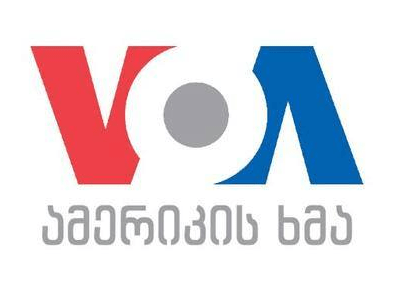Jukneviciene: there was disproportionate use of administrative resource in the first round
Anna Kalandadze of Voice of America’s Georgian Service talked to Rasa Jukneviciene of Lithuania to discuss the latest Georgian Presidential elections and the upcoming runoff.
During the first round on October 28, Jukneviciene headed the election observation delegation of the NATO Parliamentary Assembly in her capacity as the President of the organization. Her mandate as NATO PA President expired on November 19.
Madame President, you were in Georgia to observe the Presidential elections. What was your major finding or a concern and what is your expectation from the second round, in terms of how it should be administered?
First of all, I was very happy and proud to lead the NATO PA delegation and observe the first round of Presidential elections together with other international partners. Georgia is one of my personal, Lithuanian and NATO PA’s priorities. Georgia, no doubt, is a leader in terms of democracy and reforms in the region. It is a leader compared to some Balkan countries that are seeking the same goals. But on the other hand, we had a lot of concerns during the elections. The election day itself was quiet and smoothly administered, but the election campaigning, when the heat was very high, presented a problem. We found that administrative resources were used for one candidate; it was very disproportionate and this is unacceptable for a democracy. Huge amount of money was spent just for one candidate – we also mentioned this in a statement. In addition, some media were improperly used to promote just one candidate. So comparatively speaking, after Georgia’s 2012 elections, it is not a big step forward, but rather a step back. To use administrative resources just to keep power is what I spoke during press conference and it is not good for Georgia’s future. I am sure it will not affect Georgia’s Euro-Atlantic path, but some signs concern me.
How would you explain the lack of compromise culture and excessive polarization that you underlined during your visit?
Many countries in the former soviet space have similar challenges. I visited Moldova, ahead of a trip to Georgia. Luckily, Georgia looks much better than Moldova, but oligarchic system and absence of power-sharing with opposition are the signs of a soviet regime. Even in the western Balkans there is a similar situation. In all these places, the Kremlin is using the situation and benefiting by having Georgia and other countries more or less controlled by an oligarch. To me, this kind of concentration of power is a very inappropriate understanding of democracy.
Recently, the government announced it would write-off some bad debt for 600,000 voters. Prominent local NGO’s already labeled this development as an unprecedented move to bribe votes. What is your take?
I have heard this message. I met Georgian parliamentarians last week in Halifax and they described this gesture. Of course, this is bribing, there is no other way to look at this. They are doing everything to save this election. This is bribing, and it is very much unacceptable.
The NGO sector is an essential asset in a democracy. Lately, verbal condemnations against its members have increased in Georgia. What is your assessment?
All of the observers mentioned that this was something new, that government members were attacking in a harsh way this [very] foundation of democracy. So I understood the as government wanting to have NGO’s favoring it, and this is not acceptable.
15 years after the Rose revolution, what do you think is the legacy of the event?
I think, Georgia is on a right track. It is in the interest of the Georgian people to live in a democracy. I am sure Georgia will become a member of NATO and EU, not tomorrow but it will. What I urge and recommend the Georgian politicians, is to have more agreement on various issues. There are many different understandings of politics by almost every politician. If they could show a unified understanding or a strategy on the future of the country, that would be great. I will be very frank and open, maybe I am wrong, but I did not hear a word from a leading politician, like Bidzina Ivanishvili, on e.g. NATO membership, EU membership. We know that without pushing, it is impossible to join alliances. Otherwise, statements will be just declarations. Government needs to be very energetic and active about it. The incumbent as well as the former rulers have sought appropriate goals for the country, however new challenges determine new ways of policy-making or reforms. I wish my best and send compliments to Georgia and its success in the future!
 Partner Post
Partner PostThis material was prepared for Civil.ge by the Voice of America. In order to license this and other content free of charge, please contact Adam Gartner.